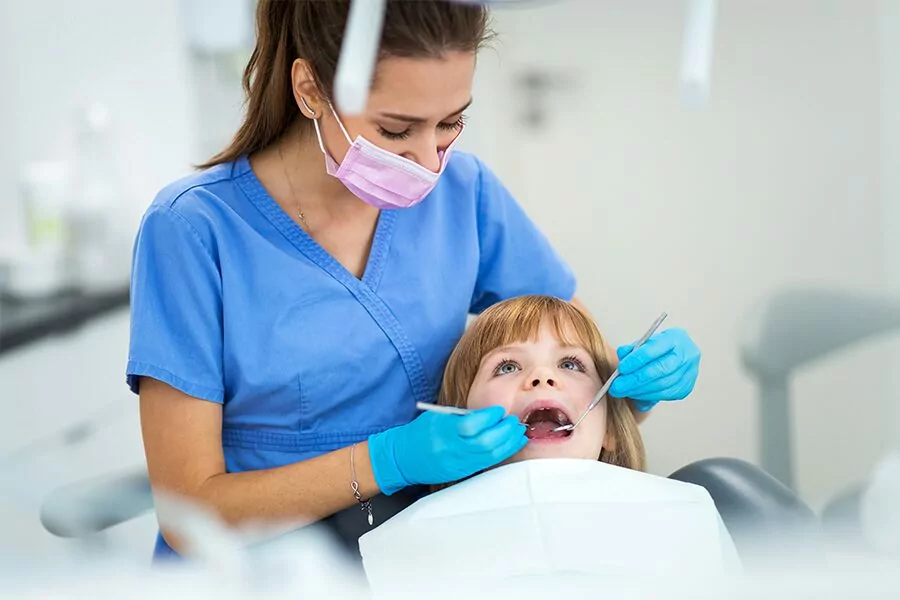An Overview to Usual Dental Conditions That Need a Dental professional's Treatment
Understanding the range of dental conditions that require specialist treatment is vital for keeping optimum dental wellness. Toothaches, as an example, can be symptomatic of severe issues such as cavities, broken teeth, or abscesses, each requiring particular interventions like fillings or root canals. Gum disease, from the early stages of gingivitis to extra extreme periodontitis, emphasizes the relevance of normal oral examinations and cleanings. Affected wisdom teeth and jaw disorders can introduce considerable discomfort and problems. Guaranteeing timely visits to the dental professional can reduce these issues effectively, yet exactly what are the indicators and therapies entailed?
Toothaches
Toothaches are an usual oral condition that can range from moderate discomfort to extreme discomfort, usually suggesting a hidden issue that calls for professional focus. This pain can originate from a range of sources, consisting of oral cavities, fractured or fractured teeth, and dental abscesses. Each of these problems poses substantial threats if left without treatment, potentially causing more serious difficulties.
Tooth decays, additionally called cavities, are caused by the build-up of plaque that deteriorates tooth enamel, resulting in openings or pits in the impacted teeth (dentist in eugene oregon). Cracked or fractured teeth, on the various other hand, may arise from trauma, grinding, or attacking into tough items. These structural problems can subject the sensitive internal layers of the tooth, triggering pain and raising the risk of infection. Abscesses hurt infections at the root of a tooth or in between a tooth and the gum tissue, commonly resulting from extreme decay or without treatment cavities.
Efficient therapy of toothaches involves dealing with the source. This might consist of dental fillings for cavities, crowns for broken teeth, or origin canals and prescription antibiotics for abscesses. Early intervention by a dental specialist can protect against further damage and reduce discomfort, making certain optimal dental wellness.
Gum Tissue Illness
Gum condition, a common yet commonly ignored dental problem, shows up with inflammation and infection of the gum tissues and supporting tissues. If left untreated, gingivitis can progress to periodontitis, an extra serious form identified by the damage of the supporting bone and connective cells, inevitably leading to tooth loss.
The main source of gum illness is bacterial plaque, a sticky, colorless film that frequently bases on teeth. Poor oral health, smoking cigarettes, hereditary predisposition, and certain clinical problems, such as diabetes, can exacerbate the risk of creating gum illness. Regular oral exams are vital for early detection and monitoring of this problem.
Treatment for gum tissue disease ranges from expert dental cleansing and scaling to advanced treatments like root planing and periodontal surgical procedure, depending on the intensity. Preserving good oral health practices, consisting of cleaning twice daily, flossing, and using an antibacterial mouthwash, can considerably decrease the threat of gum tissue disease and advertise healthier periodontals.
Cavities
Tooth cavities, also called dental decays, are an usual oral problem defined by the destruction of tooth enamel as a result of acid-producing germs in the mouth. These bacteria prosper on sugars and starches from food and drinks, creating acids that slowly wear down the enamel, causing dental caries development.
Early-stage tooth cavities may disappoint signs, yet as they advance, they can cause tooth pain, level of sensitivity to warm or cold, noticeable holes or pits in the teeth, and staining. If left without treatment, that site tooth cavities can permeate deeper layers of the tooth, possibly causing extreme pain, infection, and also tooth loss.
Protecting against tooth cavities entails a mix of good dental hygiene techniques and dietary behaviors. Regular brushing with fluoride tooth paste, flossing, and routine dental examinations are important. Dental professionals may likewise recommend extra preventative steps, such as fluoride treatments and oral sealants, to secure teeth from degeneration.
Treatment for cavities depends upon their seriousness. Small tooth cavities can be resolved with dental fillings, which bring back the tooth's framework. Advanced situations might need crowns or also origin canal treatment if the decay has actually gotten to the tooth's pulp. Timely intervention by a dental expert is vital to stop difficulties and keep overall oral health and wellness.

Impacted Knowledge Teeth
Impacted knowledge teeth are a widespread oral problem that occurs when the 3rd molars, generally described as wisdom teeth, stop working to fully emerge or line up correctly within the mouth. This problem typically results from insufficient room in the jaw or an abnormal development angle of the teeth. Affected wisdom teeth can bring about a range of complications, consisting of damage, pain, and infection to surrounding teeth.
When wisdom teeth come to be influenced, they are frequently partly appeared or continue to be entirely beneath the gum line. This partial eruption can create a path for germs to get in the periodontals, bring about infections that materialize as swelling, discomfort, and also fever. In addition, impacted wisdom teeth can put in pressure on neighboring teeth, possibly triggering crowding or shifting.
A detailed oral exam, commonly entailing X-rays, is necessary for identifying impacted knowledge teeth. Normal dental exams are advisable to check the problem and preserve oral health.
Jaw Problems
Jaw disorders, collectively called temporomandibular joint (TMJ) problems, include a variety of conditions that influence the jaw joint and surrounding muscle mass. These conditions can materialize via signs such as pain or inflammation in the jaw, trouble chewing, a popping or clicking sound when opening or closing the mouth, link and also chronic headaches. TMJ conditions can occur from various factors, including arthritis, jaw injury, or regular habits like teeth grinding or jaw clenching.
Diagnosis of TMJ conditions typically involves a comprehensive assessment by a dental practitioner, including a physical assessment of the jaw, oral X-rays, and in some cases advanced imaging techniques like MRI or CT checks to evaluate the joint's condition. Therapy alternatives differ relying on the severity of the condition. Non-invasive methods such as physical treatment, dental splints, and medications targeted at lowering inflammation and discomfort are usually first-line treatments. In much more severe situations, medical treatments might be essential to correct structural issues within the joint.
Very early intervention by a dental professional is essential to stop the development of TMJ conditions and to maintain total dental wellness. Individuals experiencing persistent jaw pain or dysfunction need to seek prompt assessment and treatment.
Verdict
Toothaches often indicate underlying issues such as cavities, broken teeth, or abscesses, requiring prompt intervention. Impacted knowledge teeth and jaw conditions likewise require specialist interest Full Report to reduce pain and stop additional issues.
Dental tooth cavities, likewise known as caries, are caused by the accumulation of plaque that deteriorates tooth enamel, leading to openings or pits in the impacted teeth. Abscesses are painful infections at the origin of a tooth or in between a tooth and the periodontal, commonly resulting from severe degeneration or neglected dental caries.

Additionally, impacted knowledge teeth can exert pressure on surrounding teeth, potentially causing crowding or shifting.
Comments on “Professional Tips for Choosing the Right Dentists Eugene for Your Dental Health and wellness”